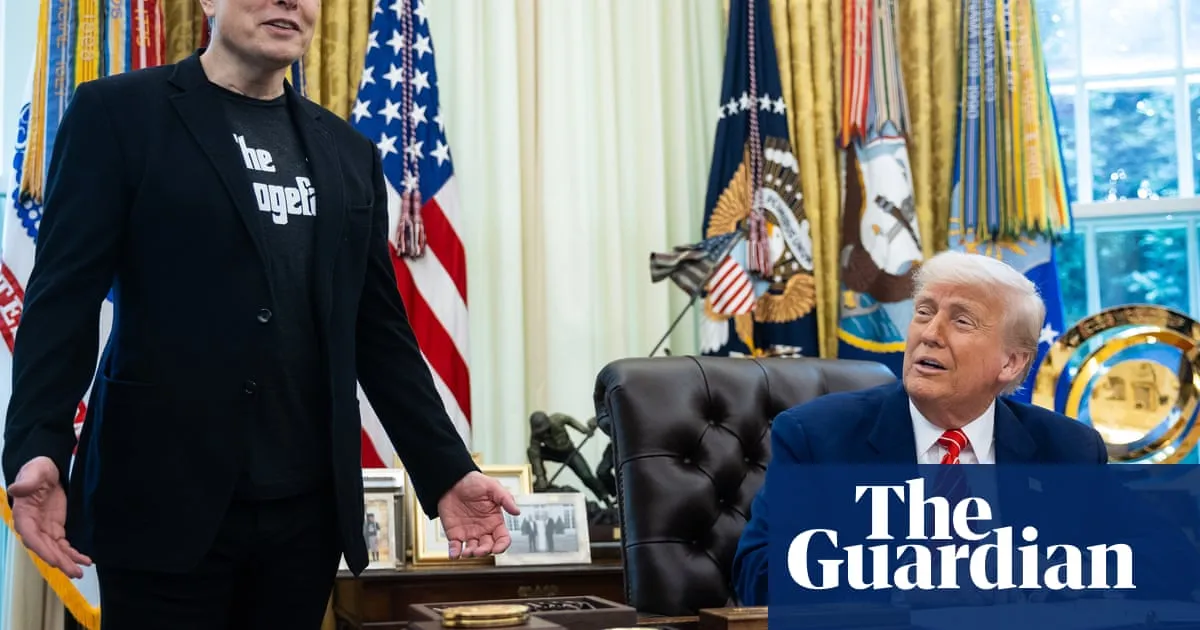
On Friday, former President Donald Trump bid farewell to Elon Musk as the Tesla CEO concluded a more than four-month tenure leading the controversial Department of Government Efficiency. Musk's efforts during this period were aimed at implementing disruptive reforms within federal departments, though the initiative achieved far fewer cost savings than initially anticipated.
Standing alongside Trump in the Oval Office, Musk, who faced a 130-day limit as a special government employee that expired two days prior, expressed that his departure "is not the end" for the Doge initiative. "The Doge team will only grow stronger over time. The Doge influence will only grow stronger. I liken it to a sort of Buddhism – it’s like a way of life,” he remarked, hinting at the ongoing evolution of the program.
In a show of appreciation, Trump lauded Musk as a transformative figure, stating he "delivered a colossal change in the old ways of doing business in Washington." He referred to Doge as "the most sweeping and consequential government reform program in generations," underscoring its significance in the realm of federal operations. To commemorate Musk's service, Trump presented him with a golden key to the White House, highlighting Musk's commitment despite facing "outrageous abuse and slander."
The duo's appearance coincided with a report from the New York Times detailing Musk’s reported use of ketamine, ecstasy, and psychedelic mushrooms while campaigning for Trump last year. Musk appeared in the Oval Office sporting a black cap and suit jacket over a T-shirt, alongside a bruise around his right eye, which he attributed to playful interaction with his young son.
Conceived during the campaign after Musk endorsed Trump's bid for re-election, Doge was established via an executive order signed by Trump just hours after his inauguration. The initiative saw many young staffers, some with ties to Musk and minimal government experience, deployed across federal agencies. Their goal to cut $2 trillion in government spending was later revised to $1 trillion by the time Trump took office. This strategy was characterized as a crucial part of Trump's vision for a "golden age" marked by lower taxes, streamlined government, and stricter immigration policies.
However, the Doge initiative faced significant backlash. Labor unions and Democrats protested against mass firings and raised concerns that its unconventional methods would undermine government operations. The initiative became notorious for controversial communications, including infamous emails regarding "fork in the road" resignation offers and requests for employees to document their accomplishments.
Doge played a role in the firings of thousands of probationary workers and the dismantling of the U.S. Agency for International Development (USAID), both of which have faced legal challenges. As the initiative gained momentum, Musk made headlines at a prominent conservative conference, where he brandished a chainsaw, proclaiming it was "for bureaucracy!" However, the aggressive approach led to missteps, including the hasty rehiring of probationary employees from the agency responsible for overseeing nuclear weapons.
As the Doge initiative unfolded, Tesla vehicles and dealerships became targets of vandalism by those opposed to Musk, and reports indicated growing discontent among Trump's newly confirmed cabinet secretaries. Despite the controversy, Doge's public website currently claims to have saved only $175 billion, which falls short of Musk's ambitious goals. "We do expect to achieve over time the trillion dollars of savings," Musk stated in the Oval Office, expressing optimism about reaching this target with support from Trump and Congress by mid-next year.
As Congress prepares to review appropriations bills for the upcoming federal fiscal year, Republicans are expected to push for the codification of Doge’s cuts into legislation. Meanwhile, Musk affirmed his intention to remain engaged, stating he would "continue to be visiting here and be a friend and adviser to the president," hinting at his ongoing influence in shaping government efficiency.